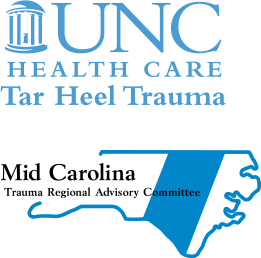Teenagers are known to be greater risk-takers and believe they are invincible. Some teens may experiment with alcohol and drugs recreationally or use them to self-medicate. But all drug and alcohol misuse has the potential of becoming dangerous and deadly from overdose. Even if a teen won’t be using themself, they will likely be around a friend who is, be a bystander, or see someone post about it on social media. With the prevalence of substance misuse and the recent rise in overdoses, it is crucial to know about the Good Samaritan Law.
Under North Carolina’s Good Samaritan Law enacted in 2013, a person can seek medical assistance by contacting 911, a police officer, or EMS for themself or someone else experiencing a drug overdose without fear of prosecution for the following:
- Underage possession or consumption of alcohol
- Possession of small amounts of drugs
- Possession of drug paraphernalia
- Violating conditions of probation, parole or post-release
Currently, the law requires the caller to provide his or her name to law enforcement or EMS to qualify for legal protection. While it may feel uncomfortable to share your name, you will not get in trouble and it is far more important to help the person in need.
“In an overdose situation, minutes count,” Orange County Sheriff Charles Blackwood said. “We do not want someone to delay calling for help out of fear of legal action. The Good Samaritan Law addresses this.”
Fear of getting in trouble with law enforcement or parents is what deters people from taking action and calling for help. Mary O’Donnell and Julie Boone Cummins know this all too well. Both mothers lost their sons, Sean O’Donnell and Boone Cummins, in the summer of 2017. They believe it’s possible their sons would still be alive if their friends knew about the law and sought help.

Sean O’Donnell 
Boone Cummins
Sean died June 4, 2017. He was out drinking at Sugar Lake in Chatham County with friends who at some point left as he passed out. Alone at the quarry, he fell into the water and drowned.
Boone died July 19, 2017. Friends dropped him off by the quarry after he had taken high doses of Xanax. They thought he would be fine, not realizing the dangers of the drug. As he was at the quarry alone, he sent texts and social media calls for others to join him to memorialize Sean, his best friend. Cummins said she believes Boone rolled into the water and drowned due to his inability to swim in his compromised condition.
“There were so many points during that night and so many different people who could have called,” Cummins said.
In honor of their sons, both families dedicated themselves to raising awareness about the Good Samaritan Law. In sharing what happened to their sons, they have attached faces and names to the law in a way they hope helps kids remember.
While awareness of the Good Samaritan Law has improved since 2017 in part due to the two families’ advocacy and their talks at area high schools and sororities and fraternities, they still think more needs to be done.
O’Donnell said she believes education on the Good Samaritan Law should begin in middle school so teens are informed prior to the peak time of experimentation in high school and college. After first learning of the law, she said there needs to be continued, periodic education in order for teens to absorb the information.
When employed, the Good Samaritan Law is powerful and can save lives. But people first have to know about it. Familiarize yourself with the law and tell others about it.
“You will not be held accountable if you call for yourself or someone else in a medical crisis,” Sheriff Blackwood said. “We are not just about enforcing laws, we are also about saving lives.”
If there is an overdose situation, make the 911 call. As both mothers say, “It’s just a no-brainer.”
The following column was published in print in News of Orange County. It appeared in Orange Partnership for Drug & Alcohol Free Youth’s monthly column “Talk it UP!”
Story written by Rachel Crumpler, UNC Tar Heel Trauma Program’s communications intern.



